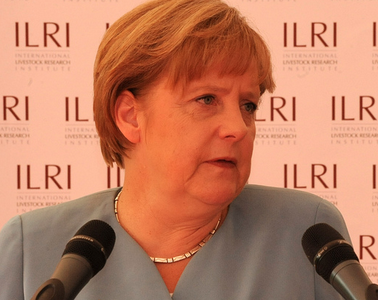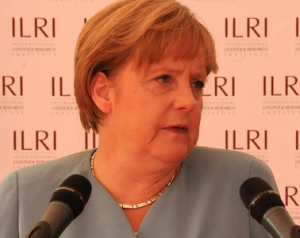This brave Neuland

 I started writing this on my own laptop at Gatwick Airport, and finished it using the wifi on a Norwegian flight. I booked the ticket myself, online. I sorted out the boarding pass myself, using data I had saved myself in iCal. I bought the train ticket to the airport with my own credit card, having first checked the train times on my mobile, and having worked out the best way to the station using Google Maps. My mobile internet, and where it does and does not work well, is something I personally know, because I use it and pay for it myself.
I started writing this on my own laptop at Gatwick Airport, and finished it using the wifi on a Norwegian flight. I booked the ticket myself, online. I sorted out the boarding pass myself, using data I had saved myself in iCal. I bought the train ticket to the airport with my own credit card, having first checked the train times on my mobile, and having worked out the best way to the station using Google Maps. My mobile internet, and where it does and does not work well, is something I personally know, because I use it and pay for it myself.
For close to 100% of the people reading this blog post, what I’ve outlined above (or at least parts of it) are everyday and normal, and have become more and more normal since the internet went mainstream in Europe in the 1990s.
Yet for Angela Merkel this world is absolutely not normal. Today she said “Das Internet ist für uns alle Neuland” (roughly translated as “The Internet is all new territory for us”). An explanation of how far it went can be found here (in English), and techPresident has a roundup, and further clarification of sorts can be found from her spokesperson in German here.
Merkel’s line, whether you believe the clarification or not, still frames the internet as something external to us. Sorry Merkel, but it is us. What she has failed to understand is that the internet changes us deeply and profoundly as citizens, and that applies to the millions of us that use the internet to do everything in our lives. And no, this is not nerds alone – more than half of phones sold are now smartphones, and more than half of populations of European countries access the net daily. A connected population is a deep political and social shift: we can do things as individuals that we would have before needed hierarchies or meetings or phone calls to accomplish.
To put it another way, it’s the whatever-the-problem-there’s-Google-or-Twitter mentality, and it is this sort of mentality that so extraordinarily rare in the highest levels of the political class in European countries, and I say this from the experience of working with a fair number of high level politicians in different countries over the last 10 years.
There’s also an element of 21st century Yes, Minister to all of this too. When working for a politician in Brussels a few years ago, my fellow employees and I feared what would happen were our boss to actually be using the internet herself, so we expressly kept her away from it. This, I fear, is what has happened to Merkel – she has never been forced to be a user, to be forced to personally and deeply come to understand what complete connectedness means as a person. More worrying is that it would not take a genius to realise her line would cause a furore, and yet none of her staff were either astute enough, or strong enough, to make sure she did not say it.
This is not about the technology as such. You could not sit Merkel (or others of her ilk) in front of a computer or tablet and teach them. Or send them to a conference to listen to the major issues at stake about the future of the net. None of that would help. The problem is a deeper one than that: what does it mean – as a person, as an individual – to be a connected citizen? And how do we get more of those sorts of people into positions of power?
(I’ll add a picture to the blog entry later on – Norwegian’s in flight wifi can’t cope with Flickr!)
This is an interesting example of what Crewe and King call ‘cultural disconnect’ between policy elites and ordinary citizens, in their new book on Government Blunders – if you dont understand how real people live, policy can easily go completely wrong.
http://www.amazon.co.uk/The-Blunders-Governments-Anthony-King/dp/1780742665/ref=sr_1_1?ie=UTF8&qid=1380365490&sr=8-1&keywords=Crewe+and+king
A bit late in commenting on this, but wanted to add that it’s a typical Merkel. A while ago when opening a major trade fair, IIRC, she noted that the “Internetwirtschaft” and the “Realwirtschaft” were slowly coming together, leaving the internet entrepreneurs present somewhat stupefied that their part of the economy was no “real” economy.
I can’t help but feel that Merkel stands in front of the internet like a duck in a thunderstorm – which is almost like a declaration of political bankruptcy, Even IF she believes the Neuland stuff, as the leader of a high technology nation, she should charge ahead at “exploring” and “cartographing” this new territory. Alas, what would be needed for that is a vision, and the only visions Merkel has ever had is how to win the next election…
Jon
I hope your post leads to much needed discussion, as well as action to make this “Newfoundland” of online regulation fit for all of us who live there:
http://grahnlaw.blogs.fi/2013/06/20/merkel-in-neuland-where-are-the-digital-natives-16146308/